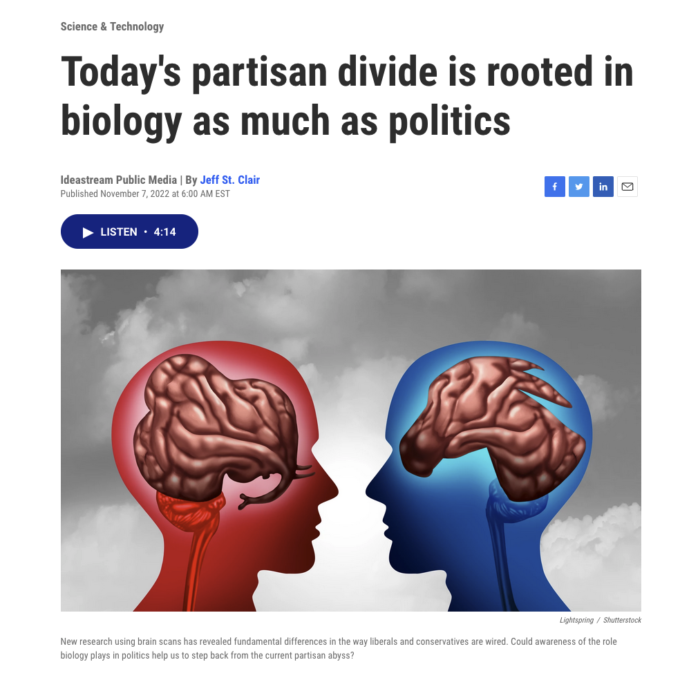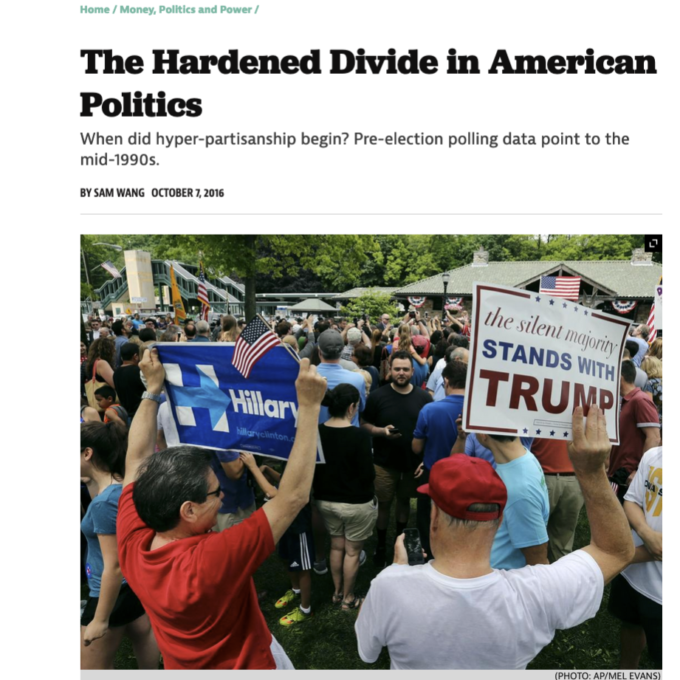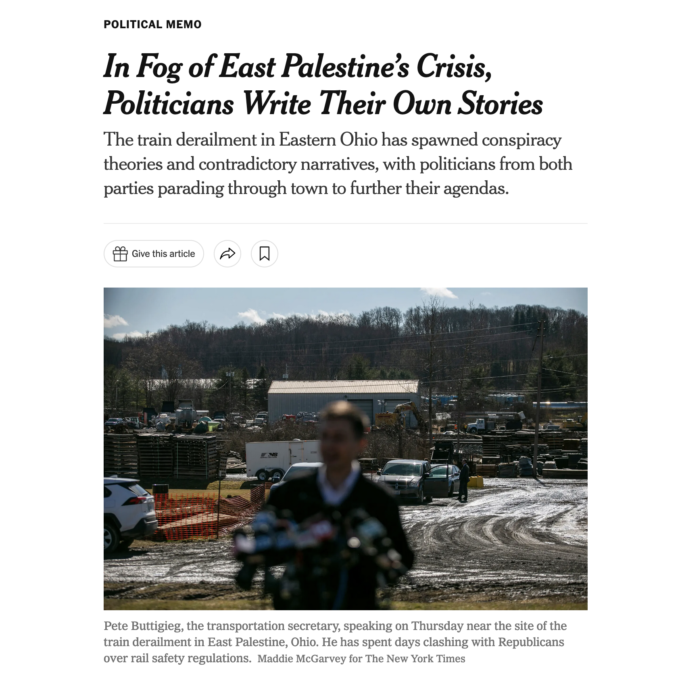Persuasion and democracy
In News Over Noise, Anand Giridharadas, states that the United States is presently divided by pro-democracy and anti-democracy movements, with the anti-democratics heading in the direction of fascism and normalizing the use of violence to secure power. Giridharadas believes that because the pro-democratic side has not been nearly as good at convincing people to join their cause through persuasion compared to their anti-democratic counterparts, that democracy is in serious danger of being replaced by tyranny.

In many ways, the anti-democracy movement is oriented towards persuasion in a way that the pro-democracy movement is not, and I think that's a recipe for disaster and tyranny.
Anand Giridharadas, best-selling author and former foreign correspondent and columnist
Democracy depends on persuasion
Some news stories reinforce the idea that people are absolutely unpersuadable. This view can make us feel very pessimistic and unwilling to work together to solve problems. Giridharas feels these kinds of news stories are not helpful to maintaining democracy. He believes these divides can be closed through persuasion.
Below are some examples of news stories that reinforce the idea that our opinions cannot be changed, that we are unpersuadable.

Born this way
The headline "Today's partisan divide is rooted in biology as much as politics" paired with the scientific-looking illustration reinforces the idea that once a person has arrived at an opinion, they cannot be persuaded otherwise.

Forever divided
"The hardened divide in American politics" headline paired with the image of 2016 campaigners from both political parties is another example of news that emphasizes the idea of unchangeable beliefs.

Post-truth politics
This story about politicians from both parties using a train derailment to advance their own political agendas makes the claim that neither side cares about the truth. This is another example of news that reinforces the idea that we are so unpersuadable and stuck in our ways, that the truth does not matter to either side.
The relationship between meaning-making and persuasion
Persuasion is a multi-step process. Opinion formation begins with observations that lead to questions. In News Over Noise, Anand Giridharadas gives an example of a person perceiving that there are more Spanish-speaking cashiers at their local pharmacy than there were last year.
In Giridharas' example, the average person goes to Walgreens in their small town in Arizona, and notices that there are more Spanish-speaking cashiers at this Walgreens compared to last year. They do not automatically go from observing more Spanish-speaking cashiers at Walgreens to thinking, "We're having an alien invasion on our border, and we need to jail people, and separate kids, and have militia men shooting at people!" That's not how political opinion formation works. There's a tremendous amount of ladder one needs to climb, emotionally, psychologically, and intellectually from the Walgreens observation to fearing an alien invasion on the southern border.
The opinion you form about an issue is the result of a lengthy process of making meaning out of observations. A singular observation in a pharmacy does not lead directly to an anti-immigration stance, Giridharas emphasizes. To arrive at that opinion, someone must be incrementally persuaded toward that stance long before they encounter the Hispanic pharmacy employees. Certain bad actors, both within the United States and internationally, have become adept at manipulating that meaning-making process to advance their agendas.
Reporting vs. meaning-making
Reporting is not the same as meaning-making. Reporting is the relaying of factual information to create a public that has the information they need to form opinions. Meaning-making is the result of what people do with that information. The decision to engage in meaning-making vs. reporting has a profound impact on the effect a media outlet has on their their readers, listeners, and/or viewers.
To illustrate this, Giridharadas gives an example of two major news networks that he believes are not merely just opposites of each other, presenting left and right points of view, as some might think. Rather, he says, one is reporting by broadly covering major national news events from a center-left view, while the other is practicing meaning-making. Instead of providing viewers with the information to form opinions, this network delivers already-formed opinions directly to consumers.
What can I do?
Embrace optimism
- Historically, there's been more progress than we may realize and the anti-democracy movement is a reaction to that progress.
- People are much more capable of change than we are led to believe.
Understand the power of persuasion
- Persuasion begins with meaning-making.
- There are powerful actors with a vested interest in sowing disgust and distrust among the American people.
Practice deep listening
- Deep listening is listening to understand, not to respond. When we listen deeply, we shed our preconceived ideas and our judgement; we are open to new insights.
- Practice deep listening with someone who you might think is "unpersuadable."
Recognize the role of persuasion in maintaining democracy
- Political opinion formation is an emotional process; not logical one.
- Moderate is not a synonym for centrist; it's not that political moderates are in the middle of the road on policies, it's that they are more easily persuadable to lean one way or another.
Listen & Subscribe
Listen to Episode 107: Overcoming Pride and Prejudice Through Persuasion and subscribe to our News Over Noise podcast to continue learning how to balance staying informed while protecting your well-being and the public good.
